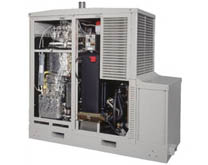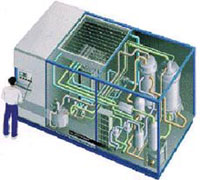|
|
|
|
|
|
In theory, a fuel cell can power anything that runs on electricity. The following applications can take particular advantage of a fuel cell's attributes. Fuel cells have many applications today, and the list is growing fast. There are three basic market segments that fuel cells satisfy: transportation, portable/battery substitution and distributed power.
Fuel Cells for Transportation
Most vehicles today rely on an internal combustion engine (ICE) that burns fossil fuels (gasoline or diesel) to generate motive force. While adequate, this system has many unpleasant side-effects (environmental pollution). The ICE is also a poor fit to the demands of a vehicle. Electric motors are much more suitable because they deliver their maximum torque at low rpm, just when a vehicle needs it most. And when a driver heads downhill or puts on the brakes, an electric motor can double as a generator to recapture that energy and covert it back to electricity for subsequent use.
A disadvantage of the electric car is the short range and tedious recharging of the first generation. This is the main reason why battery-powered electric cars have tainted the notion of an electrical vehicle in the public eye. But these problems can be overcome when a fuel cell powers the vehicle's electric motor. A hydrogen tank can be refueled in about five minutes, and has a similar range to a conventional automobile. While handling hydrogen gas requires specific precautions, it is just as safe to fuel your car with hydrogen as with gasoline or natural gas.
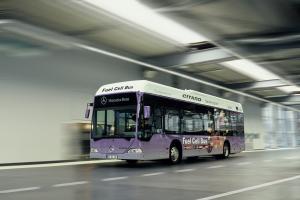
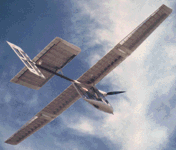
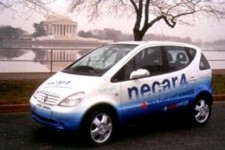
Fuel Cells for Portable and Battery Substitution
Fuel cells will find their first widespread use in portable electronics. These "micro fuel cells" offer far higher energy densities than those of comparably sized batteries, allowing a typical laptop to operate unplugged for ten hours or more. Micro fuel cells also offer the added appeal of eliminating the need for battery chargers and AC adapters, as they require refueling instead of recharging. This process could be done via "hot-swapping" whereby the device does not need to be turned off to get a new full tank of energy.
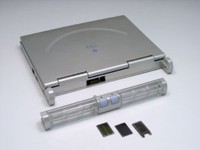
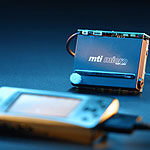
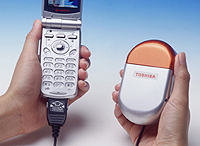
Fuel Cells for Distributed Power
Fuel Cells are not the most efficient way of producing electricity while they seem to be one of the most sustainable ways of storing energy. At that time the only barrier for the development of such systems for these applications is the high cost. Nevertheless fuel cells are attractive in autonomous stationary applications for a variety of reasons. They deliver unparalleled fuel efficiencies, especially in Combined Heat & Power (CHP) applications where the waste thermal energy is harvested for HVAC or industrial purposes.
